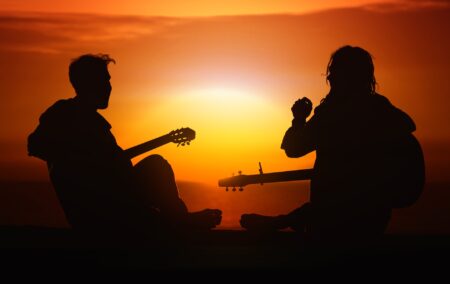The golden rule, both negative (refrain from doing to others what you do not want done to yourself) and positive forms (do to/for others what you would like them to do to/for you) is found in every major religion and culture going back to Confucian and Ancient Egyptian times. In fact, it can be considered an expression of the closest humans have come to a universal ethic.
The most important maxim I was taught growing up, however, takes none of these forms, but it also communicated a principle of reciprocity that in a sense, unified both of these historical forms and therefore might be considered to enjoy even greater universality.
This maxim, ‘Umuntu ngumuntu ngabantu’, was repeated by my Grandmother as she hosted events where she would slaughter a sheep or a cow, when I would question whether it wouldn’t be cheaper just to restrict access and make it invite only. Or after she had just shared some food with neighbours, or when my father was chastising me for walking on a neighbour’s lawn,or being read the riot act for stealing from a classmate.
The impression that all of this created was that Ubuntu could be understood as a principle of reciprocity, and it is special because it perfectly encapsulates the duality inherent in the various forms the principle has taken throughout human history. Whatever your definition of human is, the thing that sets us apart from the rest of nature, the maxim simply requires that you apply this definition to every other human being and that in fact you cannot yourself be human until this is the case.
So, what does it mean to be human? First, umuntu and abantu, a person and people, are given equal weight. The individual is not subsumed by the collective, but the individual simultaneously has an obligation to everyone else even as everyone else is obligated to the individual in question.
Reciprocity is the principle behind sacrificial offerings in many religions, you give God something, you get something back. This is also the case when it comes to sacrificing to the ancestors, but this is not simply transactional, it is both parties helping one another out of a shared mutual obligation.
Your ancestors typically appear to you in dreams, through these dreams they communicate that they are hungry, the feast is for them. In return, after their hunger is sated, they are then able to fulfill the obligation they have to you. This is a beautiful conception in my opinion, I do not believe it is correct as a Christian, but nonetheless I can respect it as long as my beliefs are similarly respected. You do not ‘bribe’ ancestors as some people of my generation seem to believe, in fact the general misunderstanding of their own culture by the young can only be a symptom of broken families.
Ancestors are obligated to you, you are obligated to them, they are your family and they still exist according to the metaphysics most Bantu groups subscribe to. Evil also exists and it exists in the spirit realm the ancestors inhabit, therefore they can fight these battles at that level, while you fight in this realm using the tools available to you. But it is the same battle. This is very similar to parts of the Christian message, but instead of the Holy Spirit, your ancestors fight a spiritual battle while you continue resisting temptation (negative obligation) and doing good (positive obligation) in the material realm.
When it comes to liberty, as an individual, taking it as given that it is a right due to you by virtue of being human, you can never fully enjoy this right while some human out there cannot also enjoy it. This is true at many levels: first, humans are empathetic creatures, when others are oppressed, we cannot help but enjoy our own freedom a little less, unless you are heartless. Secondly, the fact that some person is restricted, means that they cannot share with you something, an idea, a song, a poem, a consumer product, or even a witty comment on social media, that makes your own liberty meaningful. Taken to the extreme, if everyone else was enslaved, would freedom mean anything? It would only mean something if it were used to free other human beings.
All of this is embodied in Ubuntu, as I understand it. It may be that I am wrong because this is based solely on impressions left on me as a child. If anything, it reflects the values my family believes in. But these principles I believe to be important enough to be shared with others, the most important thing they have done for me is force me to put myself in the shoes of others constantly. And if we all did that, I believe this country can prosper.
The views of the writer are not necessarily the views of the Daily Friend or the IRR
If you like what you have just read, support the Daily Friend
Image by Gerd Altmann from Pixabay

